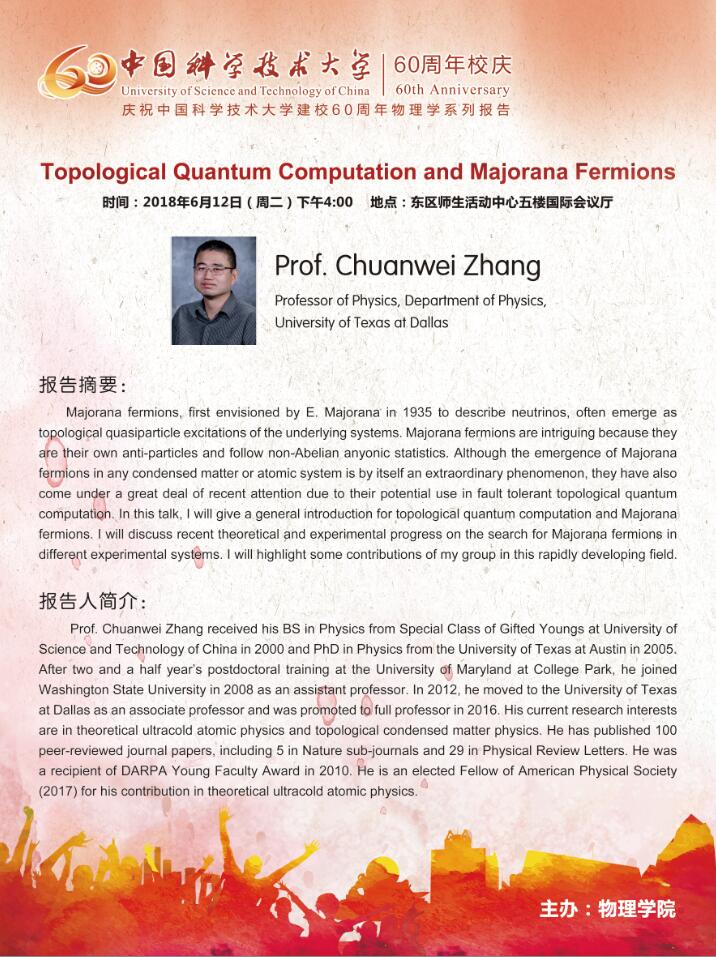报告题目:《Topological Quantum Computation and Majorana Fermions》
报 告 人:张传伟教授(Department of Physics, University of Texas at Dallas)
报告时间:2018年6月12日(周二)下午4:00
报告地点:东区师生活动中心五楼国际会议厅
主办单位:物理学院
报告摘要:Majorana fermions, first envisioned by E. Majorana in 1935 to describe neutrinos, often emerge as topological quasiparticle excitations of the underlying systems. Majorana fermions are intriguing because they are their own anti-particles and follow non-Abelian anyonic statistics. Although the emergence of Majorana fermions in any condensed matter or atomic system is by itself an extraordinary phenomenon, they have also come under a great deal of recent attention due to their potential use in fault tolerant topological quantum computation. In this talk, I will give a general introduction for topological quantum computation and Majorana fermions. I will discuss recent theoretical and experimental progress on the search for Majorana fermions in different experimental systems. I will highlight some contributions of my group in this rapidly developing field.
报告人简介:Prof. Chuanwei Zhang received his BS in Physics from Special Class of Gifted Youngs at University of Science and Technology of China in 2000 and PhD in Physics from the University of Texas at Austin in 2005. After two and a half year’s postdoctoral training at the University of Maryland at College Park, he joined Washington State University in 2008 as an assistant professor. In 2012, he moved to the University of Texas at Dallas as an associate professor and was promoted to full professor in 2016. His current research interests are in theoretical ultracold atomic physics and topological condensed matter physics. He has published 100 peer-reviewed journal papers, including 5 in Nature sub-journals and 29 in Physical Review Letters. He was a recipient of DARPA Young Faculty Award in 2010. He is an elected Fellow of American Physical Society (2017) for his contribution in theoretical ultracold atomic physics.
